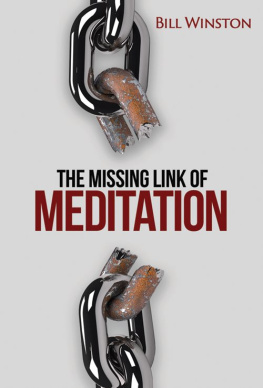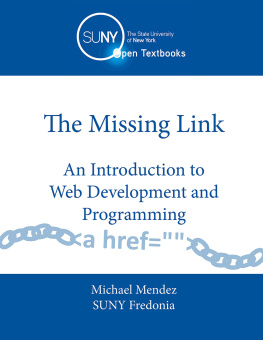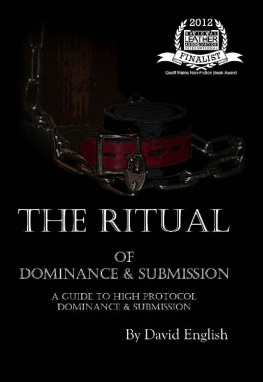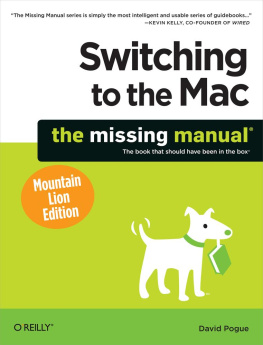First published 2012 by Paradigm Publishers
Published 2016 by Routledge
2 Park Square, Milton Park, Abingdon, Oxon OX14 4RN
711 Third Avenue, New York, NY 10017, USA
Routledge is an imprint of the Taylor & Francis Group, an informa business
Copyright 2012, Taylor & Francis.
All rights reserved. No part of this book may be reprinted or reproduced or utilised in any form or by any electronic, mechanical, or other means, now known or hereafter invented, including photocopying and recording, or in any information storage or retrieval system, without permission in writing from the publishers.
Notice:
Product or corporate names may be trademarks or registered trademarks, and are used only for identification and explanation without intent to infringe.
Library of Congress Cataloging-in-Publication Data
Knottnerus, J. David.
Ritual as a missing link: sociology, structural ritualization theory, and research / J. David Knottnerus.
p. cm.
Includes bibliographical references and index.
ISBN 978-1-59451-856-0 (paperback: alk. paper)
1. Social psychology. 2. Ritualization. 3. RitualSocial aspects. 4. Social structure.
I. Title.
HM1033.K65 2010
302.14dc22
2010016327
ISBN 13: 978-1-59451-855-3 (hbk)
ISBN 13: 978-1-59451-856-0 (pbk)
Designed and Typeset by Straight Creek Bookmakers.
Why do people behave the way they do? Sociology provides a number of answers to this question. Some approaches focusing on the micro dimensions of social life emphasize factors such as rational choice, symbolic meanings, emotions, or expectations in their explanations. Other perspectives focus on larger, macro-level phenomena such as organizational, occupational, systemic, stratification, or demographic variables to explain social developments and sometimes social behavior. Approaches of the latter kind have dominated much of the discourse and research within sociology over the last century.
One particular type of concept, however, that has not been fully exploited to explain social phenomena involves the idea of ritual. While our appreciation and understanding of ritual has been greatly enhanced by the seminal contributions of different scholars through the years, such as Durkheim or Goffman, it still remains seriously underutilized for analyzing and studying human behavior and social dynamics. The approach presented in this book, structural ritualization theory, attempts to narrow this gap in our understanding of how we behave and the social causes and consequences of our actions.
This approach focuses on the ritualized behaviors that define much of our daily lives and that are found in different kinds of social situations. The study of such rituals employs the scientific method. More precisely, I take a broad approach to science in sociology, which, among other things, recognizes the central role of abstract analytical concepts, the crucial significance of empirical evidence, the value of quite different research methods, and the usefulness of integrating concepts from different theoretical approaches and research traditions. Such an approach is also committed to using this knowledge derived from research to more effectively address problems in modern society. These points have been emphasized by various individuals, especially contributors to the Sociological Imagination Group and the book series Advancing the Sociological Imagination, which are inspired by a number of the arguments of C. Wright Mills.
Stated somewhat differently, structural ritualization theory is grounded in a commitment to three essential goals: the development of theory and abstract concepts, substantiating and illustrating these concepts through an examination of empirical evidence, and the application of this knowledge to social problems and undesirable, dehumanizing conditions in contemporary society.
This is why ritual provides a missing link in sociology. The concept of ritual and the perspective described here deal with these and other issues in the attempt to better explain some of the extreme complexity of human action and social realitya complexity, I would add, that is often missed due to the specialized nature of sociological research and the numerous sections of the American Sociological Association, which have limited communication among one another. In numerous ways, which are enumerated and discussed in this book, ritual provides a link for sociological analysis and research and expands our understanding of how we are social creatures and why we behave the way we do.
This book, therefore, has several objectives because it represents the first attempt to comprehensively describe structural ritualization theory, a perspective that since its inception about a decade ago has developed in several directions involving different extensions or lines of research. Many of its core concepts, definitions, and principles are presented here. These concepts deal with, for example, factors that influence the dominance and impact of ritualized practices on individuals and groups and a model of levels of the social order that helps us understand how rituals may spread across different micro and more macro dimensions of society. Several lines of research, especially work focusing on how structural reproduction has occurred throughout history and around the world, how rituals can be strategically used and power can influence rituals in different social settings, and how the disruption of ritualized practices and the reconstitution of ritual subsequent to such events are of crucial importance for human beings, are discussed. Other current or recent lines of research using this theory are also identified and briefly described.
Of course, weaving its way through the book and highlighted especially in its beginning and latter parts is a discussion of how this work provides a missing link in sociology. In the last chapter some of the implications of this research for addressing pressing social problems in contemporary society, the development of social policy and interventions, and enriching our personal lives are also addressed. Finally, throughout the book possible future research topics and extensions are suggested. The emphasis on future research is no accident because my firm hope is that work using this approach will only expand in terms of both building on previous lines of research and developing new ideas and topics for study that would involve a wider circle of collaborators and individuals who are interested in thinking about these issues.
In closing I would like to acknowledge the crucial contributions and help of a number of persons in the preparation of this work. Bernard Phillips, who spearheaded the development of the Sociological Imagination Group, has provided me with numerous invaluable suggestions and insights while always strongly encouraging my writing of this book. His support has been critical to its development. I would also like to acknowledge Dean Birkenkamp, Paradigms publisher, who has been both extremely supportive of and patient with me as I prepared this manuscript.












